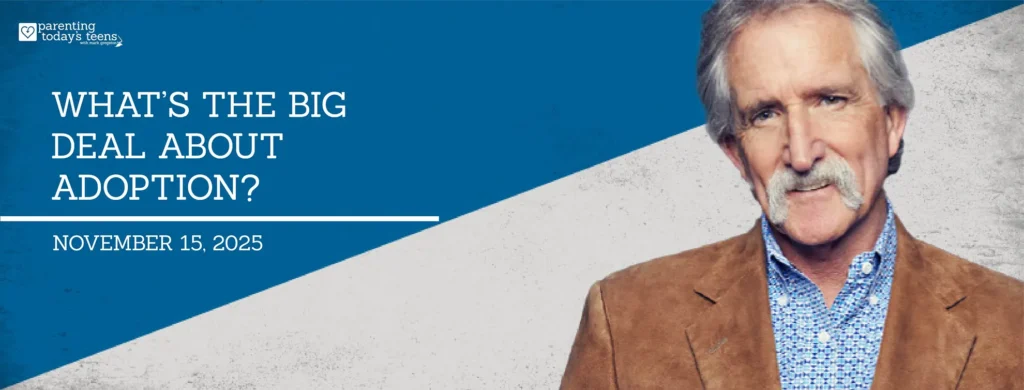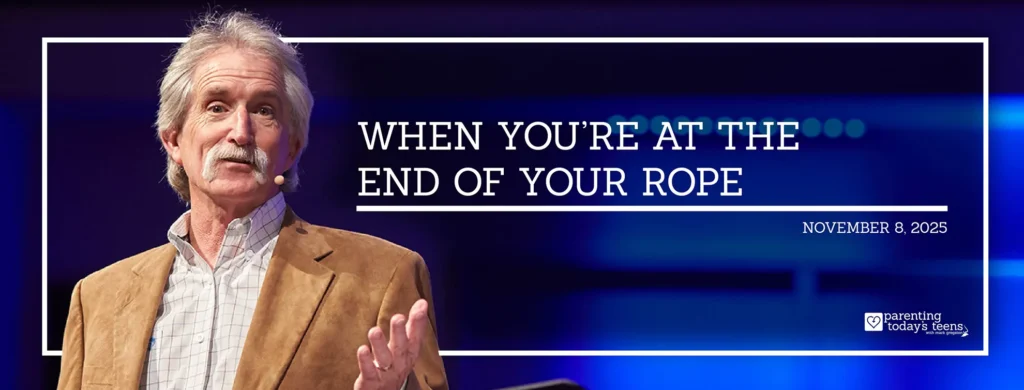Messing up is nothing new, but social media offers today’s teens a virtual Pandora’s box of poor choices they don’t want Mom and Dad to know about. When teens get caught in compromising situations or make decisions that violate their family’s values, they often retreat into silence, carrying heavy loads of guilt and shame that can damage their relationships now and in the future.
Mistakes are inevitable during the teen years, but how you respond to those mistakes will determine whether they become learning opportunities or sources of lasting shame. In this article, I’ll explain how parents can create an atmosphere of openness, honesty, and forgiveness to help teens get past guilt and shame.
Why Teens Hide Their Guilt and Shame
Before we can help teens move forward, we need to understand the difference between guilt and shame. Guilt is knowing you committed an offense—it’s the conscious recognition that “I did something wrong.” Shame, on the other hand, is the painful feeling of humiliation or distress caused by the awareness of wrong behavior done by oneself or by another. While guilt says, “I made a mistake,” shame whispers “I am a mistake.”
Teens hide their struggles for several predictable reasons. First, nobody likes to admit they were wrong—especially teens who are already wrestling with their identity and trying to figure out where they fit in the world. Your teenager desperately wants your approval and may want to stay your “little boy” or “little girl” in your eyes. They may fear that admitting mistakes will disappoint you or change how you see them. Next, all teens naturally prefer to avoid painful consequences. They’ve learned that confession often leads to restrictions, lectures, or punishments, so they calculate that hiding their mistakes might be the safer route. Then, some teens are genuinely scared or overwhelmed by experiences of real pain or loss, particularly if they’ve been involved in situations beyond their maturity level. Finally, too many teens don’t feel safe to tell you the truth. Especially if your teen has observed you being critical or judgmental toward others who mess up, or if past confessions have led to shame rather than understanding, they’ll naturally protect themselves by keeping secrets.
Honest Conversation Leads to Authenticity
Confession is absolutely key to getting past guilt and shame. Confession means owning up to what really happened and how you really feel about it. Many recovery programs understand this principle, and put it into action, statements such as “The first step is admitting you have a problem.” You simply can’t solve a problem you won’t acknowledge.
At Heartlight, I’ve seen countless teens transform once they admit there’s something wrong in their lives. When teens open up about what’s really happening in their lives, it creates an opportunity for parents to help rather than guess what’s wrong. Honest conversation leads to authenticity in relationships—not the kind of “perfect family” image that many families try to maintain, but real relationships built on truth and grace.
8 Ways Parents Can Help Teens Get Past Guilt and Shame
1. Stop pretending you’re perfect (because you’re not). There’s something attractive about sharing your imperfections with your teen. I know people aren’t drawn to me because I look or sound perfect on TV and radio. They know I’ve struggled too. When you admit your own failures and weaknesses, you give your teen permission not to be perfect either.
2. Share your struggles and how you got over them. Don’t just tell your teen about your mistakes—tell them how you worked through them, what you learned, and how you moved forward. This isn’t about sharing every sordid detail of your life, but showing them that people can recover from poor choices and grow stronger in the process.
3. Be a good example of healthy confession and honest relationships. Model the behavior you want to see. Show your teen what it looks like to acknowledge mistakes, make amends, and move forward without wallowing in shame. Let them see you having authentic conversations with others.
4. Make your home a safe place to share. If your teen hears you judging other people when they mess up, they’ll assume you’ll judge them the same way. So work at creating an environment at home where struggles can be shared without fear of ridicule, condemnation, or having their private struggles exposed to others as gossip.
5. Address emotional pain directly. Don’t be afraid to acknowledge the deeper emotional wounds that often accompany guilt and shame. Sometimes teens carry pain from experiences that weren’t entirely their fault, or they’re dealing with trauma. Be prepared to address these deeper issues with compassion and professional help when needed.
6. Offer grace and hope. Grace means giving your teen something good when they don’t deserve it—your continued love, your support, your belief in their future. Hope means helping them see that their mistakes don’t define them and that better days are ahead. Both require you to move toward your teen when your natural tendency might be to pull away.
7. Forgive your teen and don’t bring up past mistakes. True forgiveness means letting go of past offenses and not using them as ammunition in future conflicts. Don’t remind your teen about all the times they’ve messed up! The Bible says that God removes our sins “as far as the east is from the west,” and we need to model that same complete forgiveness for our teens.
8. Get outside help if needed. Sometimes the issues are too deep or complicated for parents to handle alone. Don’t let pride or privacy prevent you from seeking professional counseling when your teen needs more help than you can provide. A skilled counselor can often reach teens in ways parents cannot, especially when trust has been damaged.
Conclusion
Teens make mistakes. It’s a part of growing up and learning how to apply the very principles you’ve built into their life. Let the consequences of their mistakes work their way to helping your teen make future decisions to do the right thing. When they do make a mistake, let the natural outcomes remind them of their wrongdoing. Avoid saying these things: “I can’t believe you would ever do that.” “What were you thinking?” “I thought I taught you differently.” “How could you be so stupid?” These are all examples of shaming a teen. Shaming pushes your teen further into their sin and demeaning thinking. Instead, you need to be an example of how to let it go and move on. Now is the time to love them through their mistakes and let them know that no mistake or blunder will ever change your love for them.






